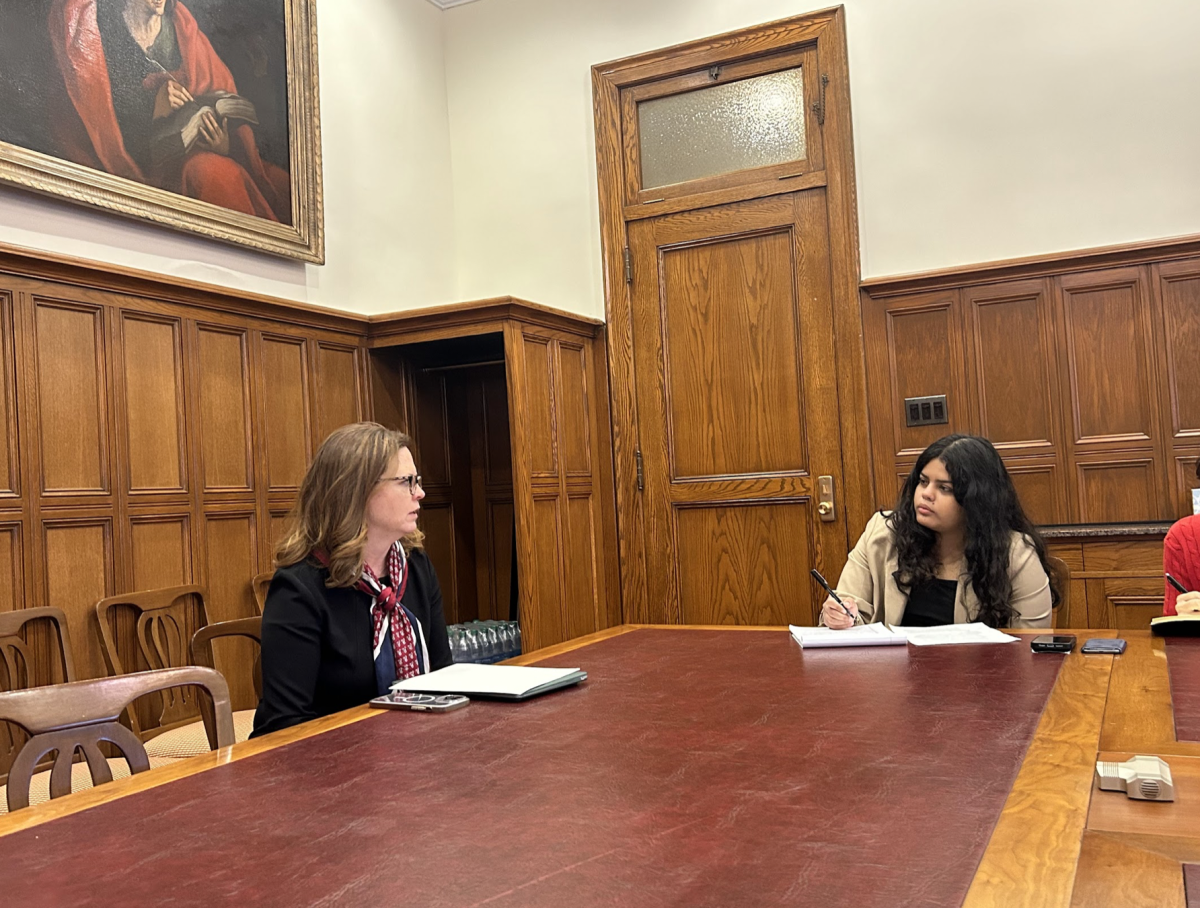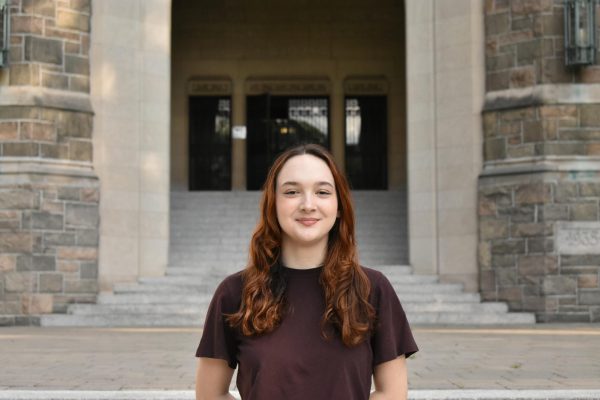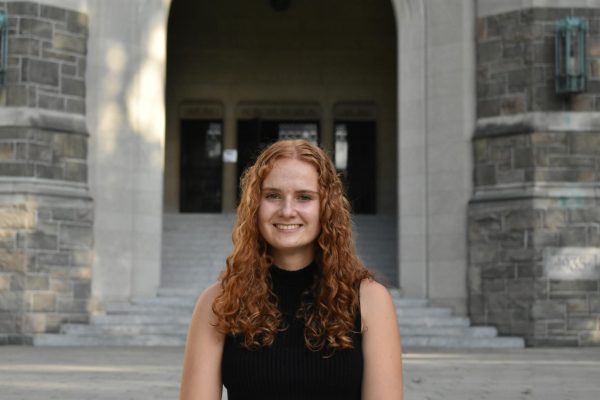President Tania Tetlow met with reporters of The Fordham Ram and The Observer on Nov. 27 to discuss upcoming plans, topics and conflicts within the university.
On the first of many points of discussion, Tetlow addressed the 6% tuition hike for the 2023-24 academic year. Tetlow said that the university can not continue to increase prices at the same rate.
“We cannot have an increase like that. The point of this institution is not to keep raising tuition so that we get paid more, right?” said Tetlow. “We really have to balance the fact that we are a nonprofit school and we need to do right by all the folks who work here, but think about where the money comes from.”
On that topic, Tetlow also addressed ongoing union negotiations on campus. Tetlow has been met with three main union negotiations during her tenure. As of the fall 2023 semester, negotiations are ongoing with the Fordham Graduate Student Workers Association (FGSW) and the Fordham Resident Assistant’s Union (FRA). FGSW has claimed in a recent rally that they have been met with silence from the university administration.
Tetlow said that the university has been in contact with FGSW.
“We’re constantly negotiating with them. And so the idea that it’s met with silence is wrong. We are now figuring out where we can more easily agree first. And so a lot of the things that aren’t about resources, but about other kinds of problems that we could solve together, where we agree with them [that] this is something that needs to be fixed,” said Tetlow.
Similarly, negotiations with the FRA have been ongoing. Tetlow said there is a fundamental disagreement on compensation.
“I think part of our disconnect there in a pragmatic way will be that, you know, we have these dorms that are very expensive for us to build and maintain in a city like New York,” she said. “When we take a room and instead of getting revenue for that room that helps us sustain the university and the dorm, we give that to an RA so that they can better do their job.”
The resident assistant award — which includes a full room and board stipend as well as a meal plan — is a non-taxable form of compensation, different to a typical salary. This is unique to the RA position.
“We spend several million dollars on the RA program and what we effectively pay per hour is significant, but it’s — because it comes in the form of a free room, a meal plan, etc., and not a paycheck — it doesn’t feel as generous as we think that it is,” said Tetlow.
Pivoting to the university’s role in the evolving social climate and public sphere, Tetlow addressed the level of responsibility the university has to respond to global and domestic issues, such as the ongoing crisis in Gaza or matters of gun violence in the United States. Some topics, such as the national Supreme Court affirmative action decision, were topical for an institution of higher education to speak on; other matters are more “nebulous,” said Tetlow.
“What I do not think it is my job to do is to tell you my opinion on every single divisive topic that exists in the world,” said Tetlow. “I’m very conscious of the fact that there are many other wars even, much less [sic] epic levels of suffering going on in countries all over the world, that I have no ability to speak out about constantly.”
Tetlow added that she is never trying to “divide the [university] community” and she is “so proud of the strength that people in this community, students and faculty and staff have shown in finding a way to lean into being there for each other at a moment when a lot of campuses have split apart.”
Additionally, on the matter of affirmative action, Tetlow asserted that the university remains keen on maintaining its diversity by every metric.
Although Fordham admissions can no longer see an applicant’s race, the application itself gives prospective students the opportunity to expand on their varied life experiences.
“It’s a mix of the strategy of how we recruit, of doing what we’re allowed to do, of selling ourselves to a diverse student body and then making sure the substance and the quality of community we provide here is as welcoming and supportive as possible,” said Tetlow.
She added that among other strategies by continuing to field students from the Bronx and the greater New York area, Fordham is growing more diverse every academic year. The university’s biggest feeder schools, for example, are Brooklyn Technical High School and The Bronx High School of Science, both of which boast high levels of diversity across the board.
Tetlow also addressed the matter of artificial intelligence and its purposes in a classroom. Fordham Law School has updated their academic integrity policy in light of artificial intelligence. According to the university, the undergraduate schools have drafted new language regarding an updated academic integrity policy and it is currently undergoing revisions by appropriate committees/ councils.
She added that the biggest question is regulation and the difference between students using AI to “push through the blank page” versus writing an entire assignment using ChatGPT. The university is continuing to monitor advancements in the field of artificial intelligence and are convening with faculty to determine the best course of action in the future.
Tetlow affirmed a commitment to be transparent with students, stating that she hopes to hold a student press conference once every semester.










































































































































































































